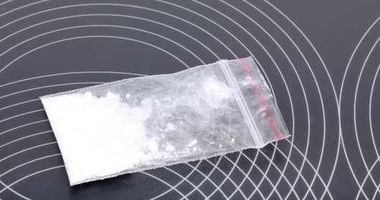A combination of buprenorphine and naltrexone can reduce cocaine intake without producing opioid...
Ketamine Infusion Combined With Mindfulness Program May Improve Cocaine Abstinence
 |
In a five-week trial conducted by Elias Dakwar, M.D., of Columbia University Medical Center and colleagues, 55 patients who met the DSM-IV criteria for cocaine dependence were randomized to receive a 40-minute intravenous infusion of either ketamine or midazolam (a preoperative sedative). They received their infusions on the second day of a five-day hospitalization in a psychiatric research unit. During their hospitalization, they began MBRP, which includes cognitive-behavioral strategies that help patients become aware of feelings as they occur. The goal of MBRP is to enable patients to make choices that improve wellness rather than react automatically in ways that may be detrimental to their health and abstinence.
After their five-day hospitalization, patients returned to the hospital twice a week for four more weeks of MBRP sessions, physician visits, and drug testing. At the end of the five-week trial, researchers assessed the patients’ cravings to use cocaine. At six months, patients participated in a follow-up telephone interview.
During the last two weeks of the trial, 48.2% of patients in the ketamine group had remained abstinent from cocaine use, compared with only 10.7% in the midazolam group. At the end of five weeks, craving scores were 58.1% lower in the ketamine group than in the midazolam group. At the six-month follow-up interview, 12 patients in the ketamine group reported abstinence compared with none in the midazolam group.
“These sustained benefits, in some cases lasting several months, suggest the potential of ketamine for effecting long-term behavioral changes,” the researchers wrote. “Moreover, the integrated treatment framework was well tolerated, and MBRP appeared to enhance certain ketamine-related benefits, such as reductions in cocaine craving scores.”
The researchers noted several limitations to their study, namely that it was small, most of the patients belonged to the same race and sex (black males), and the patients tended not to have any other psychiatric conditions.
“While the selection of patients with no comorbidities might hamper the extension of our findings to a more psychiatrically complicated population, it is likely that cocaine-dependent individuals with depression or anxiety would respond even more robustly to ketamine given [prior] evidence supporting its psychiatric efficacy,” the researchers wrote.
For related information, see the American Journal of Psychiatry article “Searching for Treatments for Cocaine Use Disorder: The Quest Continues.”
Follow Psychiatric News on Twitter!
And check out the new Psychiatric News Brief for Alexa-enabled devices or listen at the Psychiatric News website.
And check out the new Psychiatric News Brief for Alexa-enabled devices or listen at the Psychiatric News website.





